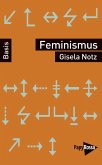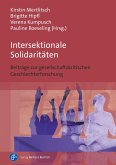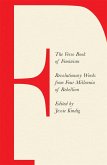Recent years have seen massive feminist mobilizations in virtually every continent, overturning social mores and repressive legislation. In this brilliant and original look at the emerging feminist international, Veronica Gago explores how the women's strike, as both a concept and collective experience, may be transforming the boundaries of politics as we know it. At once a gripping political analysis and a theoretically charged manifesto, Feminist International draws on the author's rich experience with radical movements to enter into ongoing debates in feminist and Marxist theory: from social reproduction and domestic work to the intertwining of financial and gender violence, as well as controversies surrounding the neo-extractivist model of development, the possibilities and limits of left populism, and the ever-vexed nexus of gender-race-class. Gago asks what another theory of power might look like, one premised on our desire to change everything.








